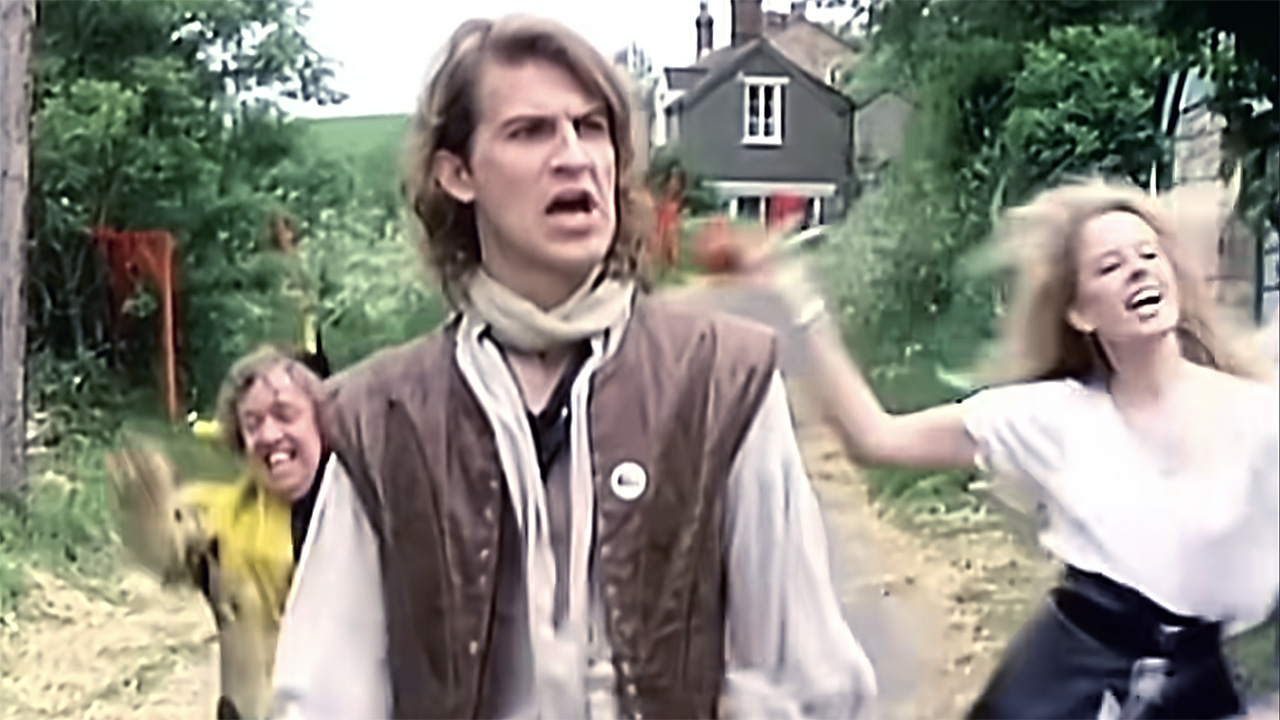The making of Kayak's farewell album Out Of This World
In 2021 Kayak released their 18th album Out Of This World. At the time, they didn't realise it would be their final farewell
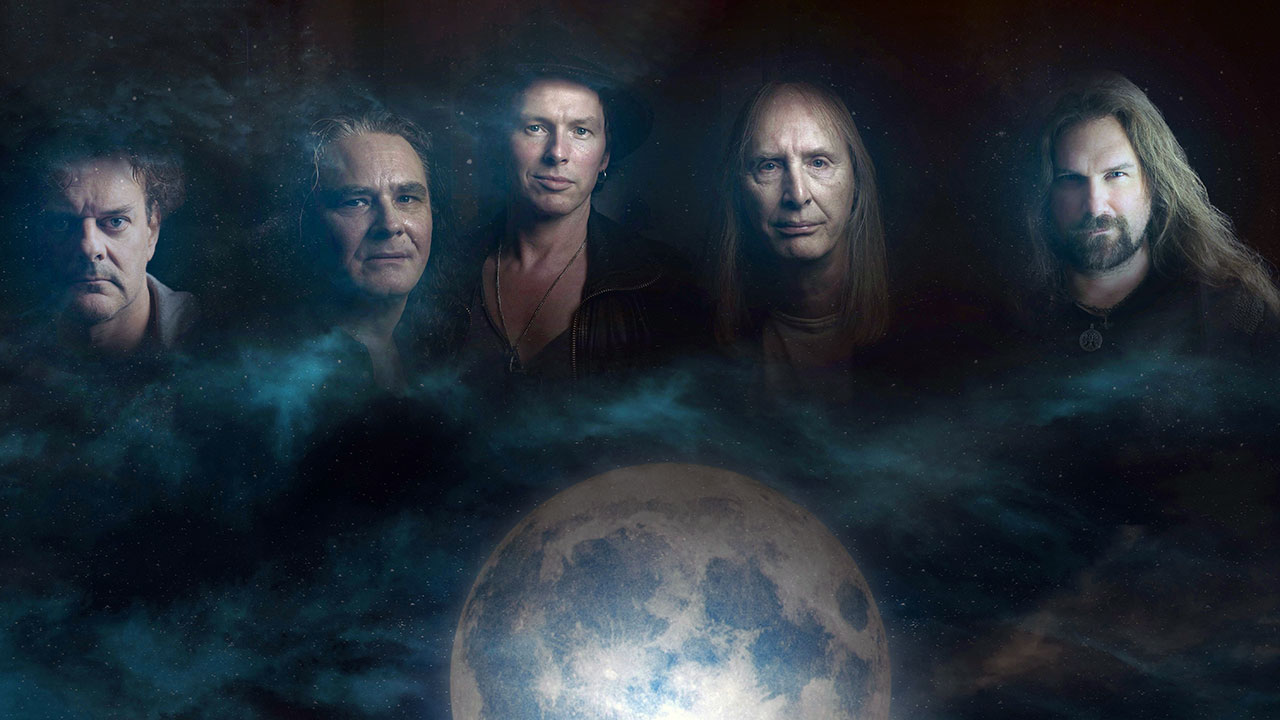
There haven’t been too many reasons to be cheerful for musicians in the 2020s so far. But Ton Scherpenzeel, founder member of Dutch prog mainstays Kayak, freely admits, “The last year, 18 months, have been very good for me. I’ve learned a lot.”
That’s not the result of enforced isolation, though. Rather it’s an upbeat attitude that’s been reinforced through the relentlessly turbulent history of a band that have released their 18th studio album and are approaching 50 years since their original formation in 1972.
The most recent tribulation to confront them could have spelled the end not just of Kayak but of their driving force. Keyboardist and songwriter Scherpenzeel suffered a heart attack in 2019, which forced him to re-evaluate his lifestyle as well as his attitude to his art.
“It made me realise how precious life is,” he tells Prog. The lean, fair-haired 68-year-old looks sprightly enough on the other end of a Zoom call. “I mean, I’m not going to make another 20 albums. So now I’m approaching every album as if it’s the last. I’m as dedicated to this one as I was with the first one.
“Over the last 18 months, I’ve learned not to trust my body anymore. So I’m working more on the body, which I never did. I’m not an excessive drinker or smoker, but this can happen to anybody. So I’m walking every day for an hour, which for me is exceptional. You know, I like playing piano and normally that’s enough movement. But my attitude has changed because I still want to go on for a little while yet…”
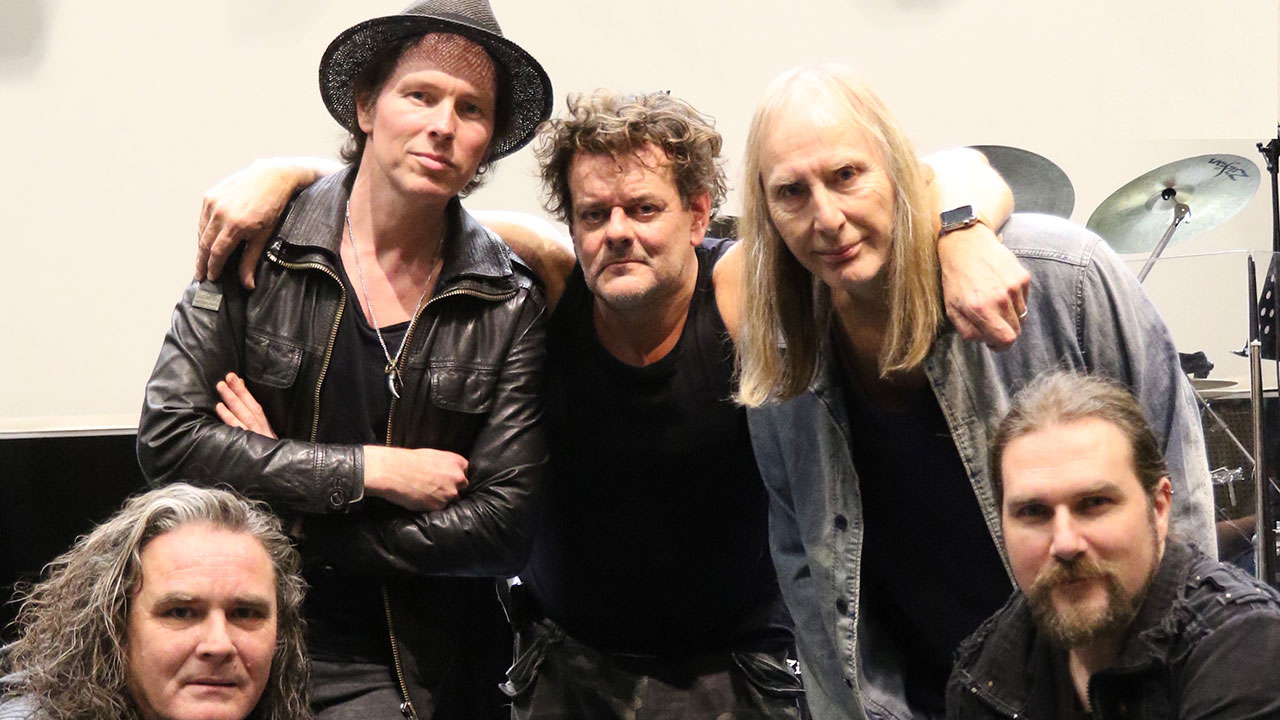
The hoary old wisdom that whatever doesn’t kill you makes you stronger may be
a cliché, but for Scherpenzeel it’s proving true, spiritually and also creatively, judging by the quality of the band’s new album Out Of This World, a 15-song, 70-minute set that blends vintage symphonic prog with stridently tuneful AOR.
It’s arguably the best they’ve made since Scherpenzeel reformed the band at the turn of the millennium after their initial 1982 split. And although the current line-up sees no fewer than four members take the lead mic at certain points, Kayak have long since moved beyond being a band of one voice. This, after all, is a group whose lead singer has regularly switched, amid personnel changes resulting in no fewer than 19 former members being listed on their Wikipedia page. Several of those have left, returned, then left again. Or died.
Sign up below to get the latest from Prog, plus exclusive special offers, direct to your inbox!
Kayak forged a role at the forefront of the Dutch prog scene in the early 70s after teenage friends Scherpenzeel and drummer Pim Koopman put a band together with Max Werner on vocals, Johan Slager on guitar and Cees van Leeuwen on bass.
After early albums skilfully blending Yes and Genesis influences to captivate Dutch audiences, Koopman left in 1976 suffering from respiratory problems. His replacement, Charles Schouten, only lasted two years.
By 1978, their sound had evolved into a noticeably more radio-friendly AOR style, and Max Werner, always a reluctant singer and troubled by stage fright despite his striking tenor voice, pulled a rare move known in the trade as “a reverse Phil Collins” by switching from lead vocals back to the drum kit that was his first love (Werner would return to the mic briefly as part of the 1999 reunion before having to leave after the first tour due to health problems).
That left centre-stage open for Kayak fan Edward Reekers to join the band, and for casual observers he’s probably the most recognisable face by virtue of arriving just in time to front Kayak’s biggest hit, the 1979 power ballad Ruthless Queen.
The group split in 1982, and Camel fans may remember Scherpenzeel’s subsequent tenure alongside Andrew Latimer and co in that band, but after a one-off live show for a Dutch TV show in 1999 Kayak decided to reform, with former Vandenberg man Bert Heerink replacing the ailing Werner up front a few months later, only for Reekers to rejoin again on vocals in 2005.
Still with us? Well, let’s not disregard Cindy Oudshoorn, who injected a new dimension into the Kayak sound as an additional lead singer from 2003.
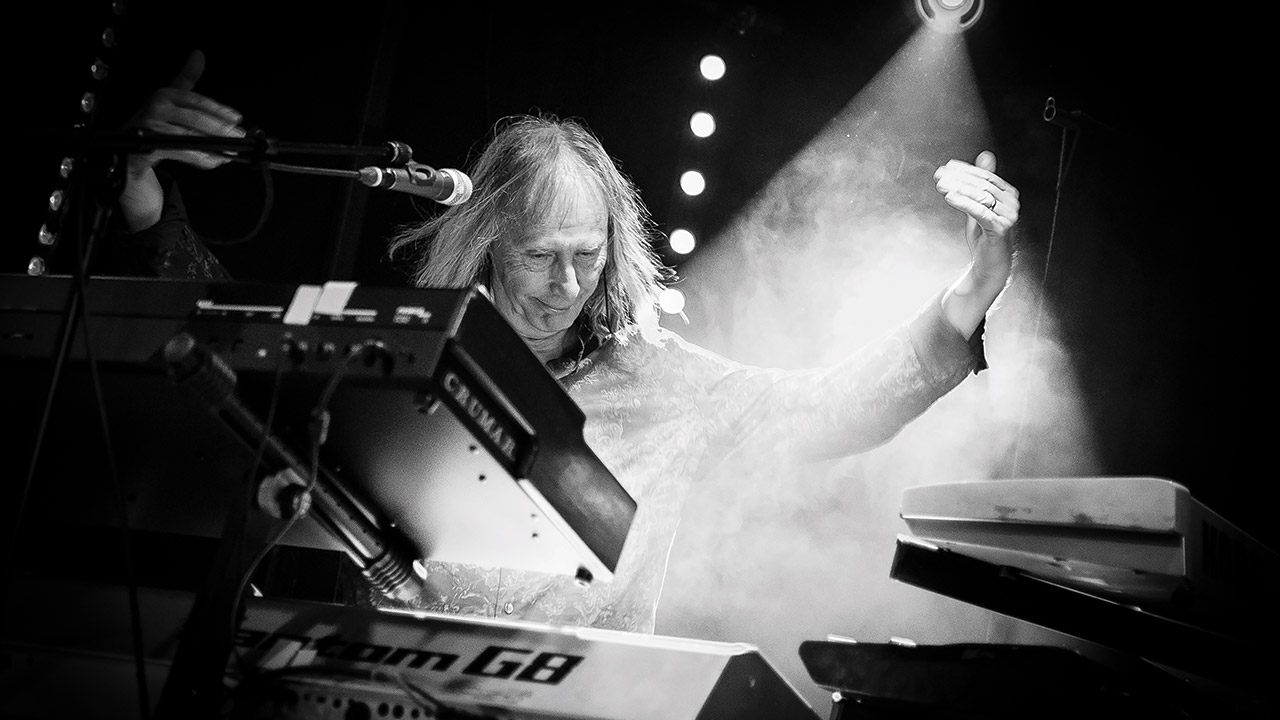
This second coming of Kayak saw them increasingly explore their progressive roots with Scherpenzeel’s classically influenced keyboards and fascination for myths and legends returning to the fore on albums such as 2003’s Merlin – Bard Of The Unseen (a more successful, proggier reworking of 1981’s Merlin album with new tracks added), and the multivoice rock opera Nostradamus: The Fate Of Man in 2005.
Readers should expect the unexpected in this band, though: in 2009, midway through a tour, co-founder and key songwriter Pim Koopman died suddenly of a heart attack. Of all the blows to strike Kayak, this was perhaps the most grievous.
“After Pim died, it was really up to me whether the band would continue or not,” says Scherpenzeel, “because we started the band together, and we restarted the band together. And in the end what kept me going – still keeps me going – was the endless drive to create. It’s not like I want a band because it’s so cosy and nice playing with people. It’s a drive to create something that wasn’t there before.”
It’s never easy, though, and after 2014’s ambitious, crowdfunded rock opera Cleopatra – The Crown Of Isis suggested the post-Koopman Kayak still had plenty of creative potential, Scherpenzeel was stunned to learn that both the band’s singers, Edward Reekers and Cindy Oudshoorn, wanted out.
“Yeah, we had troubles in the band,” he says. “It took me two years to get myself together and convince myself we should continue. I took time off. If you want to carry on, you will carry on naturally.”
Sure enough, the unstinting creative drive won through. “I started writing again.
I thought, you know, I’m not gonna let two singers leaving decide whether I should call it a day or not.”
He ended up recruiting a whole new line-up in 2017, who would make the following year’s Seventeen album. It reached No.6 in the Dutch album charts, the highest placing they’d achieved since 1980.
The only way was surely up… then came not only the aforementioned heart attack but a global pandemic, sweeping touring plans off the table and giving him further pause for reflection. He said recently, “it made me realise, once more, how fragile we all are. How connected everything and everyone is, with actions and consequences that touch us all.”
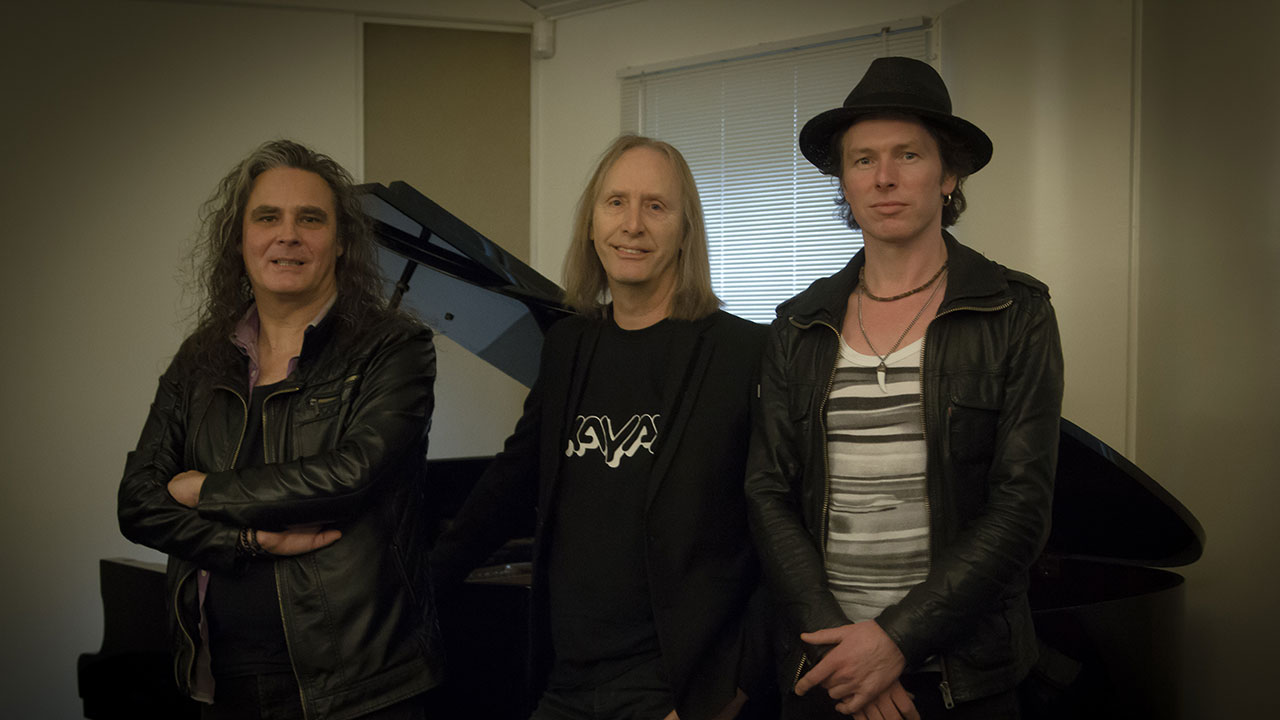
By the time Covid struck, though, he’d already bounced back from his near-death experience and written much of the new album, including the title track of Out Of This World, a storming prog tour-de-force geared around a brilliantly baroque quasi-classical synth motif. Its lyrics would soon take on extra layers of resonance as much of the planet locked itself down.
‘Why don’t we get out of this world and fly to a place we could live in?’ Kayak’s (relatively) new frontman Bart Schwertmann sings. It speaks of a wanderlust and the search of relief from a screwed-up planet.
“It’s a theme that’s been in the back of my mind for a long time,” Scherpenzeel says. "In fact it actually quotes a song of ours from 1975, Chance For A Lifetime, about a similar idea. ‘Remember Noah wrought his ship a long, long time ago?’ It’s about a man who takes off in a spaceship with a selected few. They were sort of tongue-in-cheek lyrics, but it’s the same idea with this new song, the desire to escape the world’s problems, and building a new world. Then of course, Corona hits and it seems to fit even better to the current times…”
Elsewhere on the new album the styles diversify considerably: the short, sharp Waiting, on which Scherpenzeel handles lead vocals, is funk-inflected soft rock that has a distinctly 80s feel, Cary is irresistible accordion-led folk-pop and Kaja is a transcendent instrumental passage that’s a sublime showcase for the emotive melodic strokes of new guitarist Marcel Singor. Meanwhile, the rich banks of harmonies characterising Mystery recall Asia or Yes at their most accessible.
On the proggier side of things, the irresistibly bombastic Under A Scar feels like an emotional high point of a rock opera yet to be written, slow-burning nine-minute fable A Writer’s Tale is imbued with bewitching pomp rock melodrama, and Critical Mass adopts an breathless time signature to hopscotch around another beguiling Scherpenzeel piano riff and gnarly, angular volleys of guitar.
Regardless of style, though, what strikes the listener right away is the immediacy of the songs – with hooks, riffs and instrumental flourishes demanding attention at the first time of asking.
“It’s natural to me,” says Scherpenzeel. “I’m not thinking, ‘Okay, I have to grab the listener quickly.’ I’m always trying to make every song stand out, so you need hooks, you need lines you remember, you need strong melodies. But those come out naturally in the way I write.”
Another stand-out upbeat track is Traitor’s Gate, a gutsy rocker geared around a stabbing central riff and a theme of romantic treachery. Given that it’s preceded by a bittersweet ballad, The Way She Said Goodbye, are we to deduce that Scherpenzeel has had to deal with heartbreak as well as a heart condition?
“Well, thankfully I’ve been married 45 years this year, so it’s not really personal,” he smiles. “With Traitor’s Gate, it all stemmed from coming up with that title. We were in London touring two years ago, and we went to the Tower of London, where I noticed the Traitor’s Gate sign. The same with The Way She Said Goodbye. I had the title and then I put myself into the role of the person in the song.”
Traitor’s Gate was co-written and sung by top session drummer Hans Eijkenaar (who departed with the Reekers/Oudshoorn-led line-up and later rejoined), and along with Schwertmann, Singor and Swedish former Pain Of Salvation bassist Kristoffer Gildenlöw, Scherpenzeel now feels galvanised by his band.
“I’m lucky to have such fantastic players and singers around me,” he says. “I’m so fortunate to know they are willing to work weeks and months on this album and do their thing, give their input, and I’m really lucky. That also kept me going. It’s one thing writing songs, but then you have to find the right people who want to play it.”
Perhaps the most poignant song on the record is the piano lament One By One, which ponders the passing of so many musical heroes in recent years, and how “for some vague and selfish reason we expected them
to last.”
“It was inspired by losing David Bowie, hence the mention of ‘heroes’, then every year it gets more as everybody’s ageing, which is the basic theme of the song. Later in the song I wanted to make the point that it’s gonna happen to us all, your time is gonna come, it doesn’t matter if you’re famous or not. We can’t expect our heroes to be any different. Ironically, I wrote it before my heart attack!”
Assuming Scherpenzeel’s conservative estimate is right, and he’s not likely to make another 20 albums before he joins the great rock’n’roll hall of fame in the sky, we can only hope he sticks around long enough to make a few more records as good as Out Of This World. Who knows, he might have the same band alongside him too. But maybe that’s asking a little too much.
This article originally appeared in issue 120 of Prog Magazine.
Johnny is a regular contributor to Prog and Classic Rock magazines, both online and in print. Johnny is a highly experienced and versatile music writer whose tastes range from prog and hard rock to R’n’B, funk, folk and blues. He has written about music professionally for 30 years, surviving the Britpop wars at the NME in the 90s (under the hard-to-shake teenage nickname Johnny Cigarettes) before branching out to newspapers such as The Guardian and The Independent and magazines such as Uncut, Record Collector and, of course, Prog and Classic Rock.

